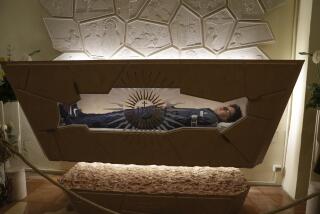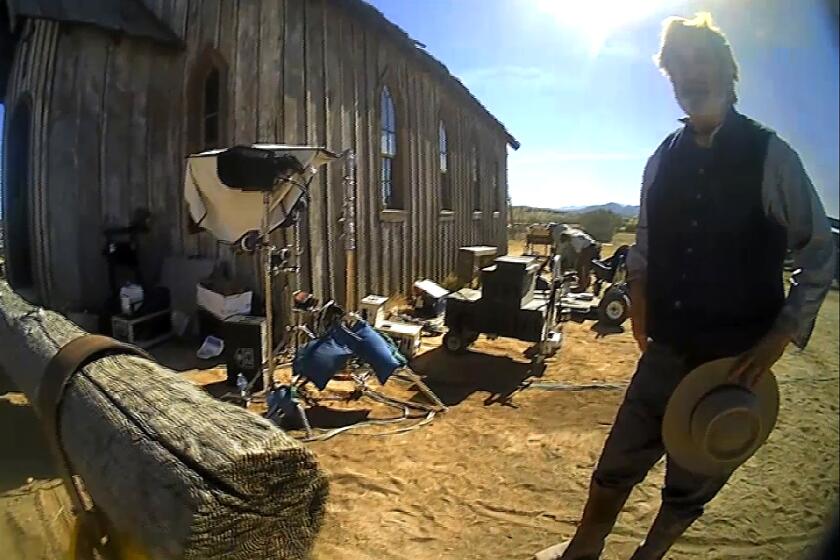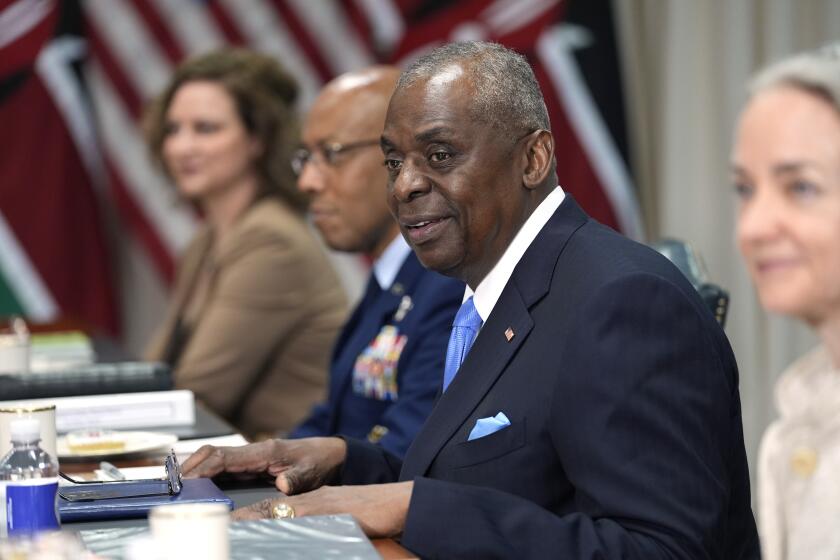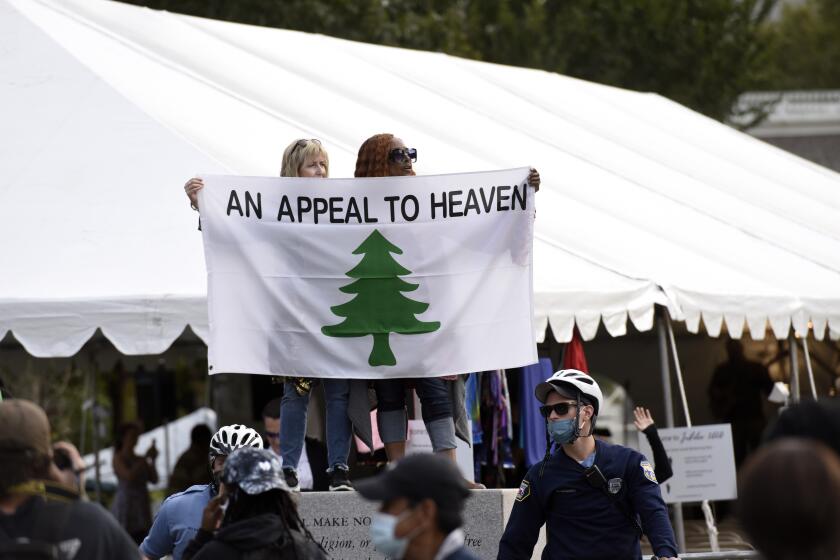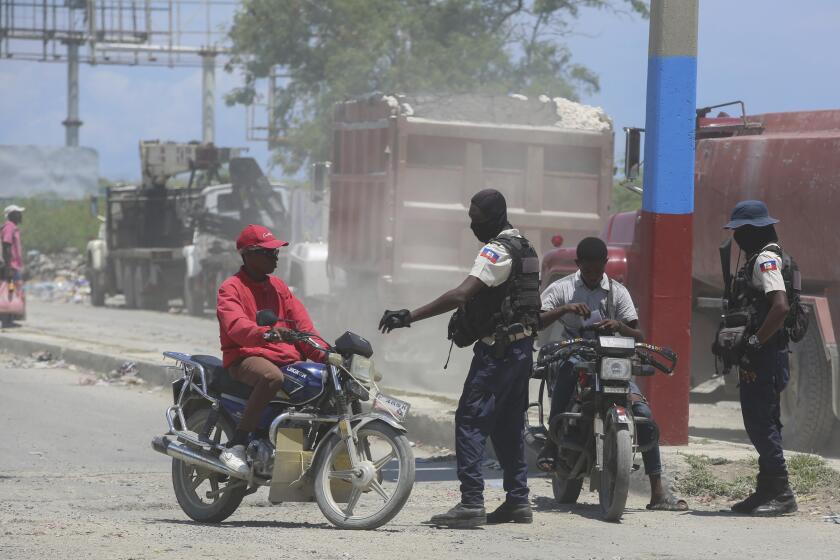At White House, the Routine Is Miraculous : Historic Signing Leaves Some Nodding--in Sleep
After almost two hours of statesmanlike speeches in a stuffy White House reception room, Israel’s normally dour Prime Minister Yitzhak Rabin captured the moment with a quip.
“Our speeches are already repeating themselves,” he said with a faint smile, gesturing at the stage he shared with Palestinian leader Yasser Arafat, Egyptian President Hosni Mubarak and Jordan’s King Hussein. “Perhaps this picture has already become routine. The handshakes no longer set your pulse racing.”
Indeed, what was most miraculous about Thursday’s signing ceremony for a 460-page agreement extending Palestinian self-rule to most cities and towns on the West Bank was the businesslike routine of it all.
Gone was the sense of wonder that marked the first Rabin-Arafat handshake on the White House’s South Lawn two years ago, when a thousand onlookers held their breath to see if the gesture of reconciliation would occur.
In its place was a workmanlike focus on day-to-day issues, born from months of tough but straightforward negotiations. One key point in the Israel-PLO pact hinges on the timetable for building a highway bypass in the West Bank; no fewer than 26 maps show exactly where Palestinian police may patrol and where Israeli forces will remain.
Perhaps more important, Israeli and Palestinian officials say that they are beginning to know each other well enough to start using a word that is rarely employed in the Middle East: trust.
“We have begun to get used to each other,” Rabin noted. “We are like old acquaintances. We can tell [you] all about Arafat’s quirks; he and his friends can tell you all about ours.”
The Israeli general and the Palestinian guerrilla still are not visibly fond of each other. There was no more warmth in their handshakes this time than at the first tentative contact two years ago. By contrast, Rabin and Jordan’s Hussein appear to have struck up a genuine friendship with warmth that is evident whenever they meet.
Still, officials said, Rabin and Arafat now “do business” more easily than before. They talked easily over a lunch of pheasant and salmon hosted by President Clinton after the ceremony, a U.S. official said. And they continued talking afterward, as they waited for their long motorcades to pull up to the White House steps.
That now-constant conversation confirms the message that both men intended to send to their constituents in Israel, the West Bank and the Gaza Strip: There is no turning back from the course they have chosen.
“We shall continue along this path--the path of a reconciliation of the brave--notwithstanding its difficulties,” Arafat said. He admonished his people to give up terrorism, “not only because the use of violence is morally reprehensible but because it undermines Palestinian aspirations to achieve peace.”
His commitment to fight terrorism was no surprise, U.S. officials said--and that was part of the point.
Israeli-Palestinian peace has become so prosaic, in fact, that many of the dignitaries stuffed into the White House East Room waged all-too-evident battles against sleep during the historic ceremony.
*
Secretary of State Warren Christopher, sitting on the stage with Israeli Foreign Minister Shimon Peres, Russian Foreign Minister Andrei V. Kozyrev and other high officials, closed his eyes early in the proceedings, as he often does. But this time, others joined him.
Treasury Secretary Robert E. Rubin yawned hugely. Tipper Gore, the wife of Vice President Al Gore, yawned more demurely. Jordanian Prime Minister Sharif Zayed Shaker settled his chin deeply into his hands. And Jordan’s Queen Noor was caught sneaking a glimpse at her watch.
At times it sounded like Oscar night as Rabin and Arafat ran through long lists of the governments that deserved thanks for their help, from Russia and Norway and Spain to Japan and Saudi Arabia and Morocco.
Earlier, officials said, the first ladies of the Middle East had met in a summit of their own: a morning tea hosted by U.S. First Lady Hillary Rodham Clinton.
To the excitement of Middle East analysts, Leah Rabin made a point of sitting next to Suha Arafat, the Palestinian leader’s wife, at Thursday’s ceremony. The two women became acquainted at the Nobel Peace Prize ceremony in Oslo last year and have stayed in touch. Mrs. Rabin even sent a baby gift to Mrs. Arafat after the Palestine Liberation Organization chairman’s daughter, Zahwa, was born in July, an Israeli official said.
Not everything about the Middle East is that normal yet, though.
The White House was under extraordinary security during the day, ringed by dozens of motorcycle police officers and patrolled by black-suited sharpshooters in vans.
Pennsylvania Avenue, already closed to vehicles, was closed to pedestrians as well.
And a huge white fabric screen stretched across the north portico, shielding the leaders from view as they entered and left the building.
More to Read
Start your day right
Sign up for Essential California for news, features and recommendations from the L.A. Times and beyond in your inbox six days a week.
You may occasionally receive promotional content from the Los Angeles Times.

